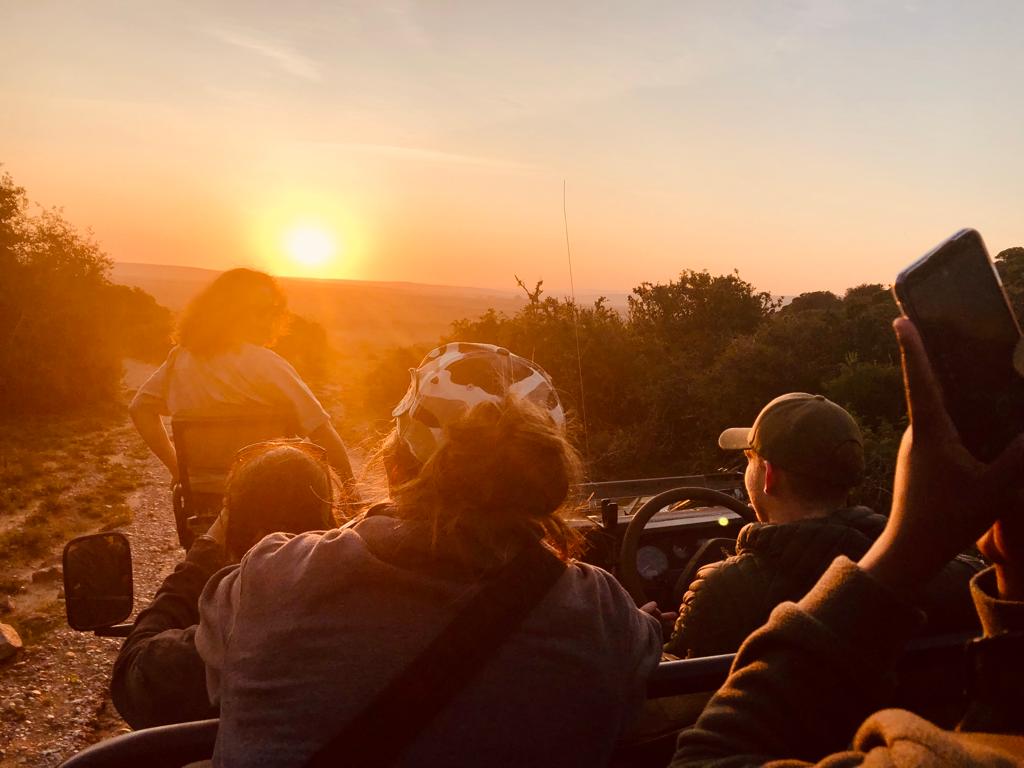
A Time Gone
Honestly, it’s hard looking back at the ten weeks that have gone by without dwelling on how little time that really is. We were told on day one:
“Your first week will feel like forever, then you’ll blink and miss the remainder”.
I remember feeling like a bushbuck in the headlights of a land cruiser when we first arrived at Ulovane, overwhelmed and frozen in place. I recently stumbled upon a video showing our first briefing, before we were even given the grand campus tour. It’s funny looking at the faces in that video and seeing the uncertainty in all of them – then watching those same faces pass by as I write this blog post in the lecture room during our final week. We’ve become so familiar with each other now it was strange seeing a time so recent in memory when we were complete strangers. As time went by in the first week, habits set in. The little things, such as charging my battery pack every three days like clockwork, to the bigger habits like carrying out thorough vehicle checks before every drive. Safety first. It all represents a part of the lifestyle at Ulovane, a lifestyle everyone here will remember, cherish and pass on to their loved ones.
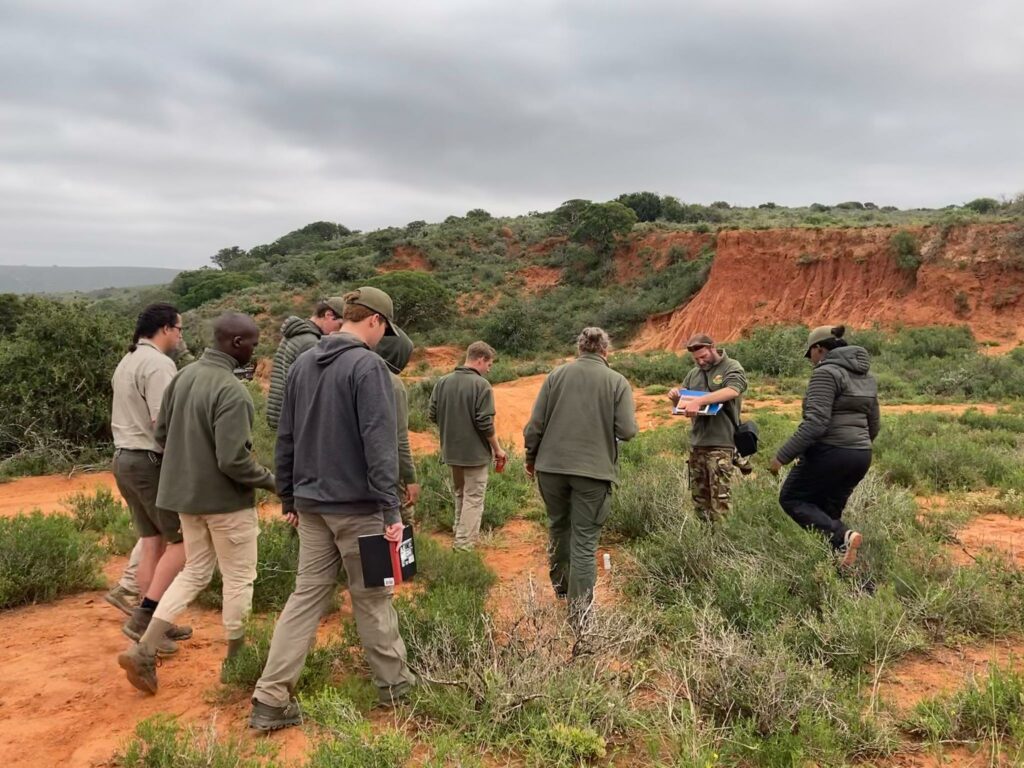
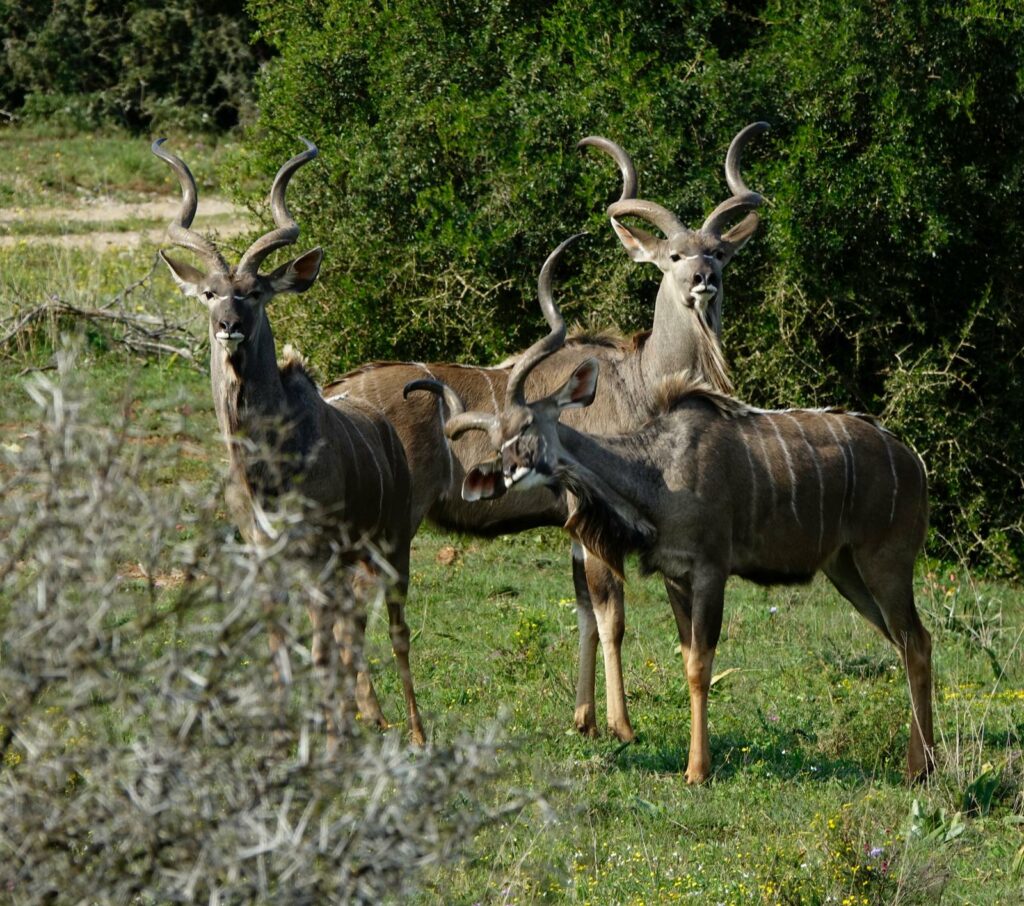
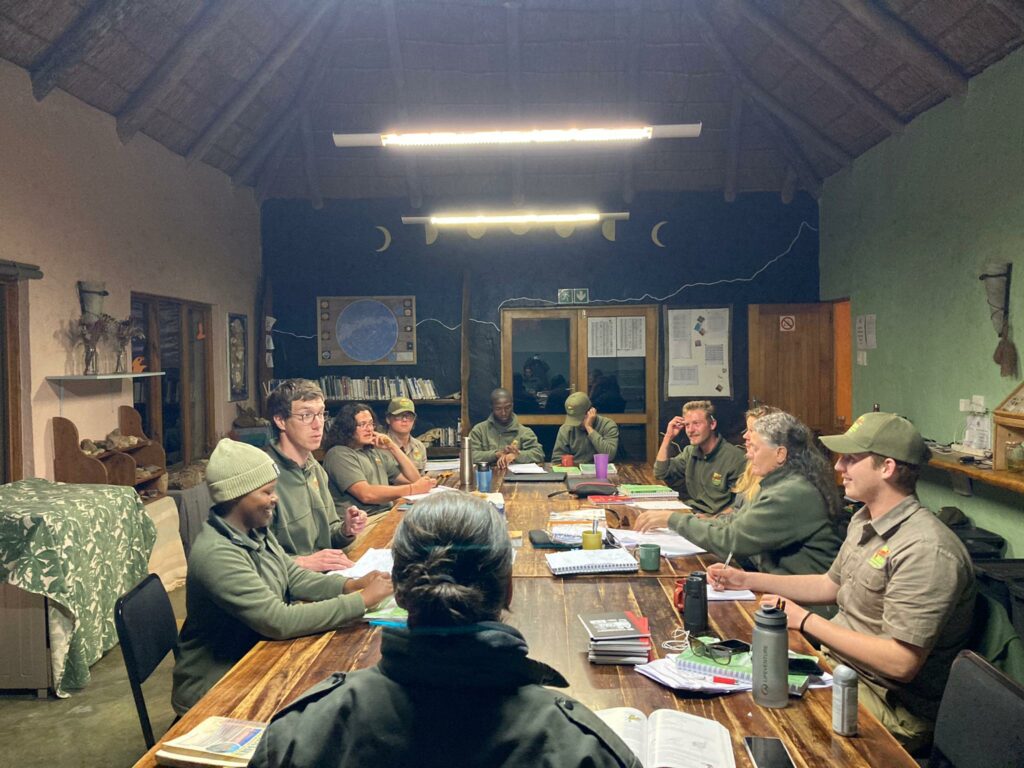
As the weeks went on we became more adept at piecing together the exciting happenings going on all around us. From identifying the difference between Southern Harvester Termites and Snouted Harvester Termites to understanding the importance of the lifeless rock material below our feet and its place as the undeniable defining characteristic of any biome. It was truly humbling to visualize what occurred here some 480 million years ago with regard to tectonic drift, weathering, and erosion which, to this day, dictates what life can thrive and where. Time marched on, and with every week that passed, we gained so much knowledge. It was a fantastic sense of accomplishment knowing just five short days prior, some modules we had never given a second thought to but now we had a solid grasp of the concepts and how they are applied to the world on our doorstep.
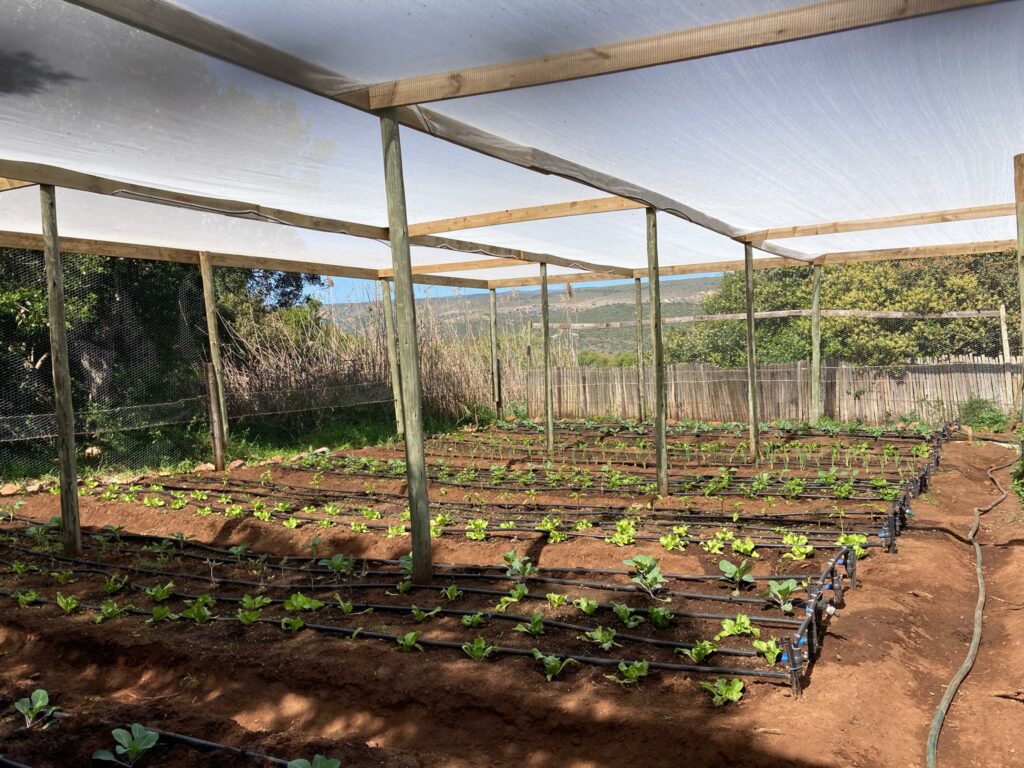
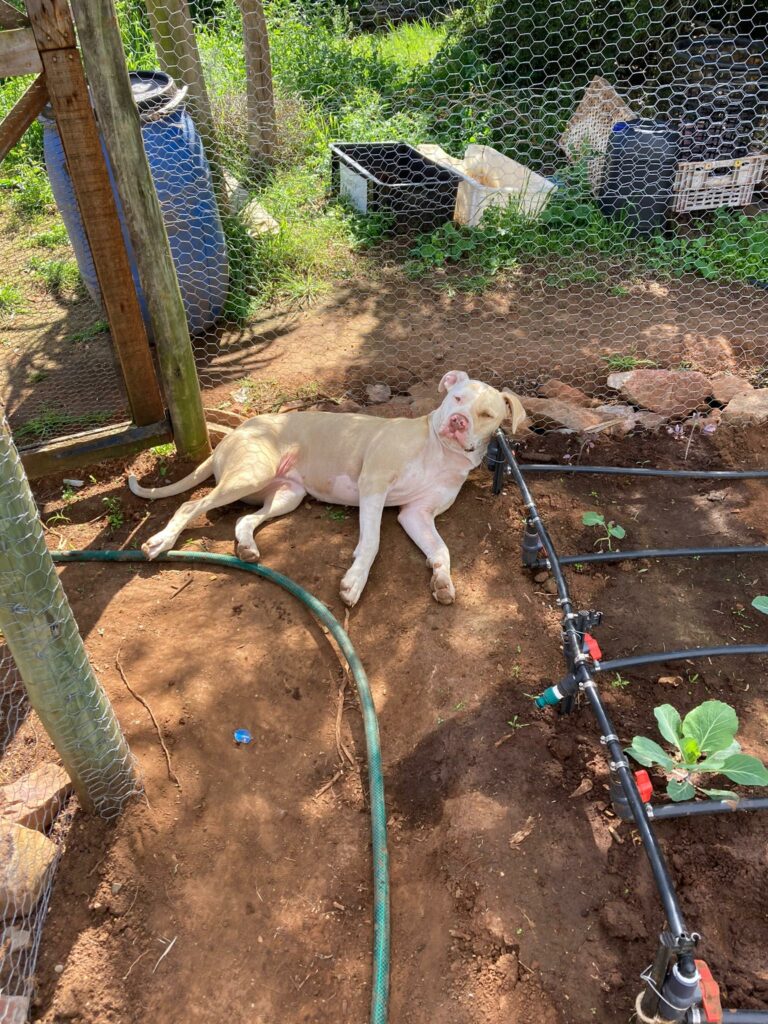
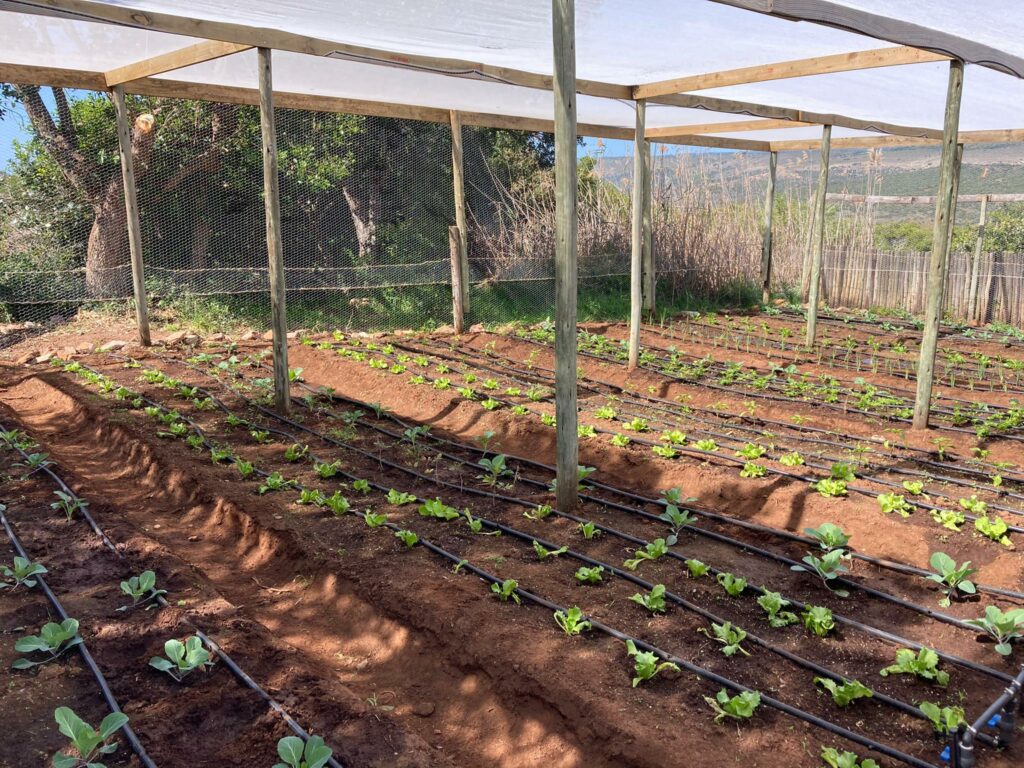
Some of my favorite memories are from sustainable living. Typically it was the morning after our once-a-week let your hair down night, following the day we got that week’s exam results. Groggy people meeting in the veggie patch to get down and dirty in the soil and shake off the week that passed. More often than not, reluctant at first but energized by the end. It really taught me about the importance of a good morning routine and how doing something meaningful at the start of the day really does affect your mentality for the better.
We continued our path. Learning, developing, questioning. Things became commonplace that once felt alien, like vervet monkeys sitting just meters away intently watching me drink my morning tea. Personally, my favorite module would have to be botany. I’ve always loved plants but never really delved into their inner workings. It is truly fascinating to think about the medicinal and traditional uses of the plethora of vegetation found in the Thicket biome. It is easy while standing at Rooiwalle on Amakhala where the nomadic tribespeople of the San cleaned their freshwater mollusks, to be transported 7000 years prior when the river was wider and the vegetation thicker. I imagine them not only cleaning their shellfish but foraging, not just for edible berries like that of the Karoo num-num, but also for medicine such as the beautiful flower known as the Plumbago whose roots can be charred and powdered to make dust with antiseptic properties. It really is incredible to think how in tune with their environment the San were.
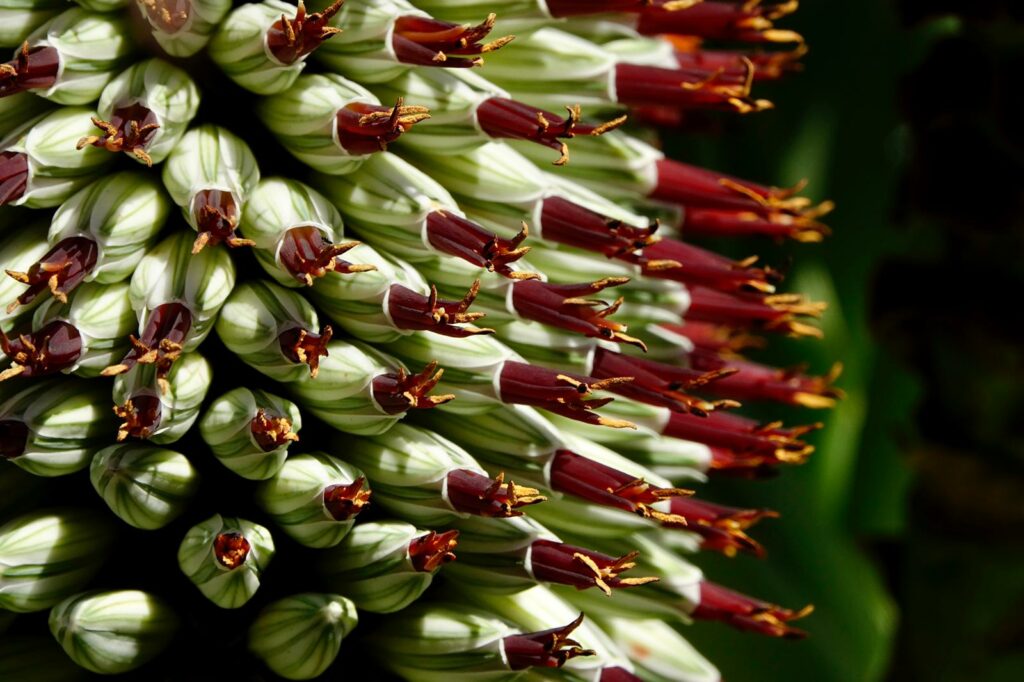
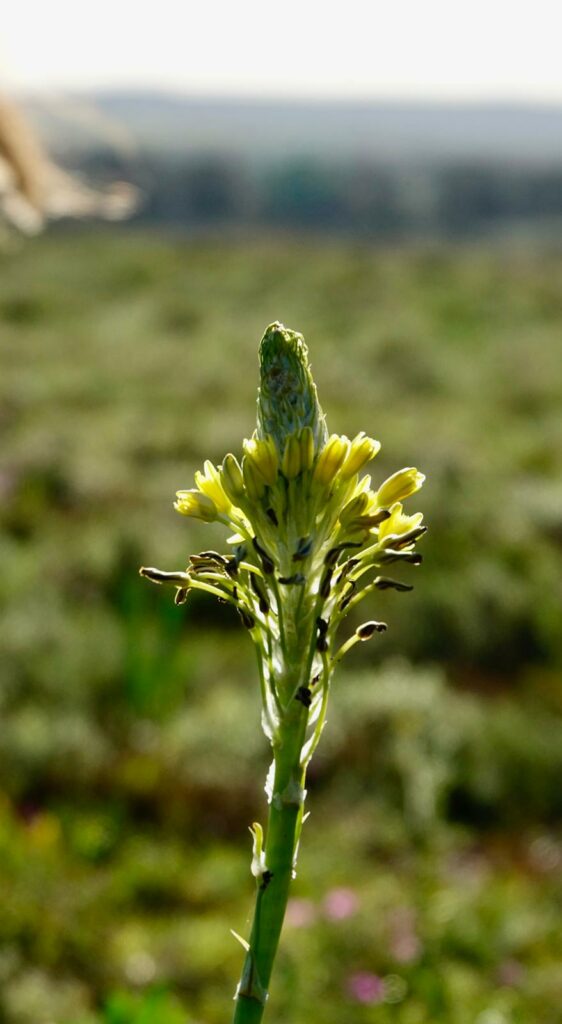
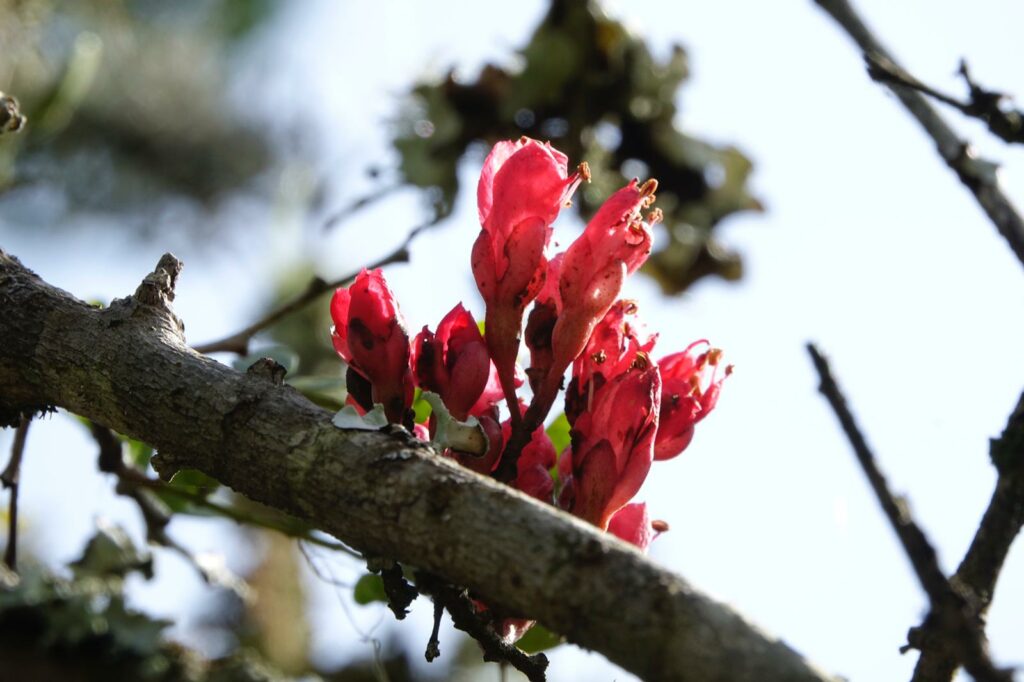
I haven’t even begun talking about the diversity of animals and the good that the reserves are doing regarding the conservation of species. Of all the antelope my favorite would have to be the Waterbuck. The fluffy neck and the heart shape on their nose really give them a unique allure. Its most interesting and unique feature though must be its social structure, like most other antelope they form a harem (many females with a dominant male). But unlike any other when young males reach sexual maturity, instead of being evicted from the herd, the dominant male chooses a successor and trains him to take on the role of protector for the herd. Not to mention the social complexity of Elephants and the fact they are so in tune with each other’s emotional state that females who haven’t recently given birth or aren’t even pregnant can begin lactating when a herd member has or is expecting a calf. It was particularly interesting seeing the emotional state of a bull deteriorate who lost a tusk to the dominant bull during a fight. It was really quite apparent to me how he was feeling, not just about the loss of the fight but more so the loss of his tusk. Like Rhinos and their horns, an Elephant’s tusks play a large part in their ability to comfortably socialize with other members of their species.
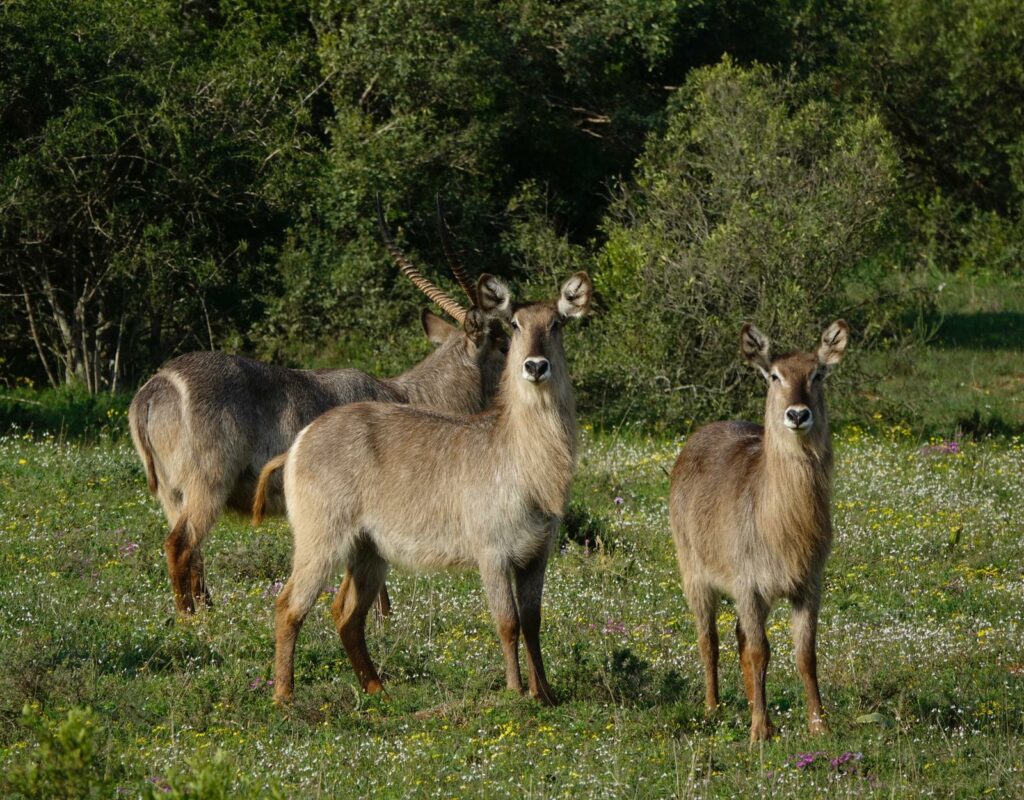
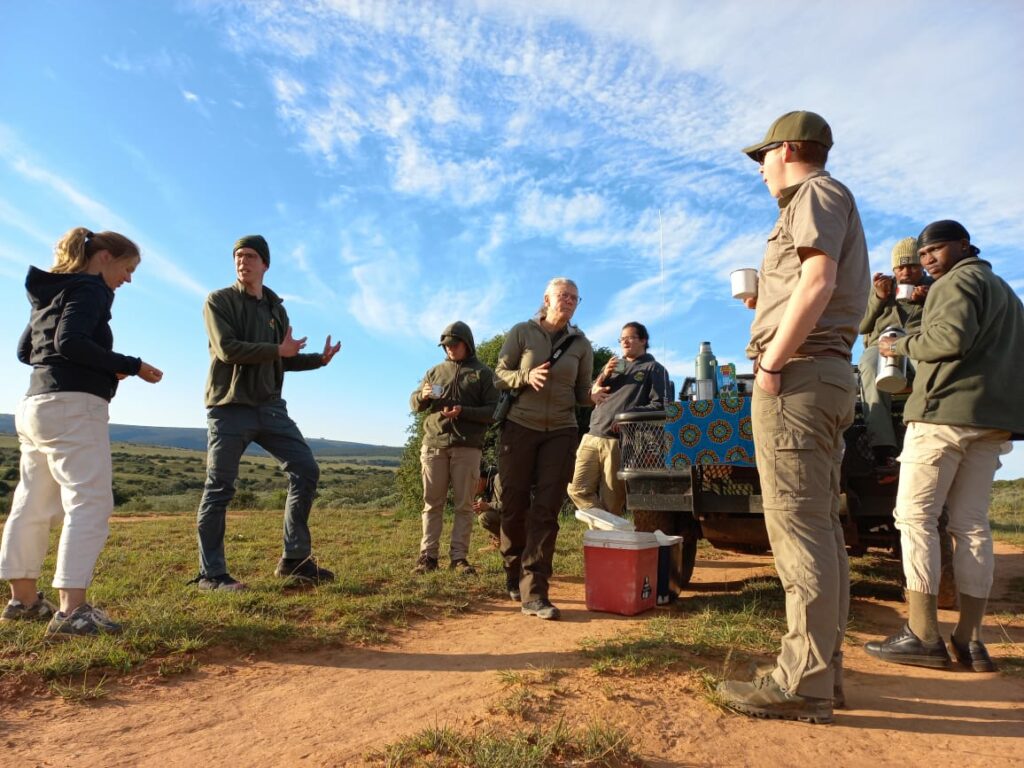
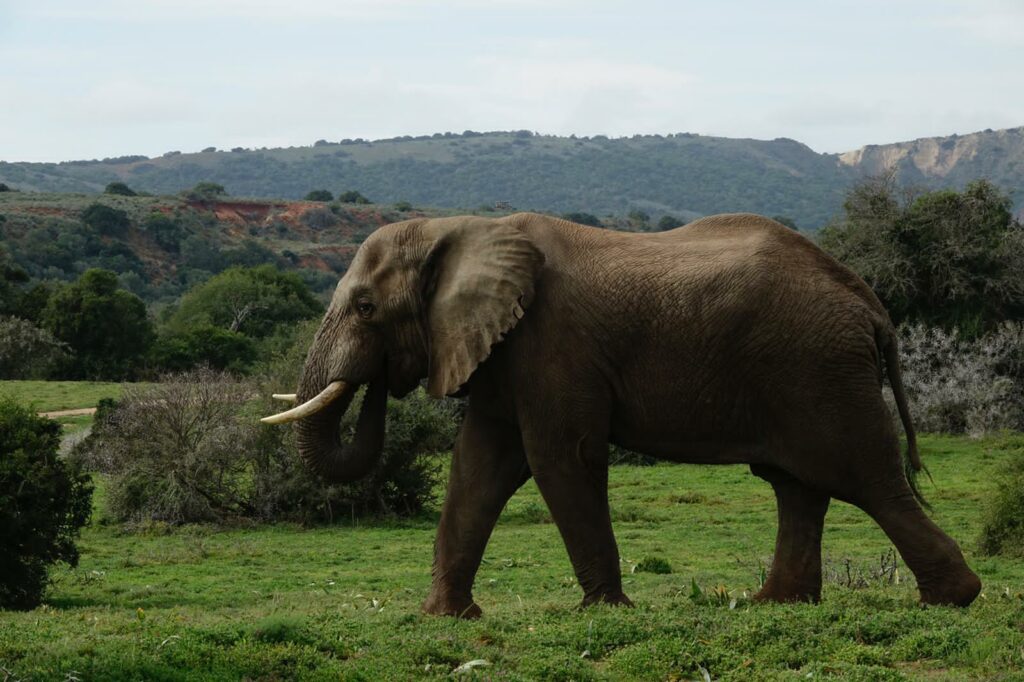
To conclude the course I feel it is only right to thank those that made it possible. Honorable mentions must go to Jacques for his amazing cooking, we wouldn’t have made it without him (as close as we came to emptying his kitchen) and Mama Joyce who without, we’d all have been rolling around in our own filth by the end of week two. Thanks to our instructor Karien for imparting so much knowledge to us and putting up with all of our nonsense (from myself mostly…) and also to Piet as a fantastic mind to probe. Simone and Annelot, thanks for your guidance and support through the course, it’s always lovely to have friendly faces around camp like yours. Not forgetting, of course, Candice and Schalk for being the reason each and every one of us are here and for building Ulovane into the place it has become.
During our final week, I have come to understand why this is Karien’s favorite part of the course. Everyone is comfortable with each other, the overwhelming sense of accomplishment for tackling our duties and studies head-on, and the jokes that can be made now that we all understand about this special slice of the world we find ourselves in. Watching the ups and downs go by throughout the course fills me with a massive sense of pride for my fellow course members, now friends. We all struggled with our own part of this and pulled together to help each other through difficulty. That’s something we can all be proud of.
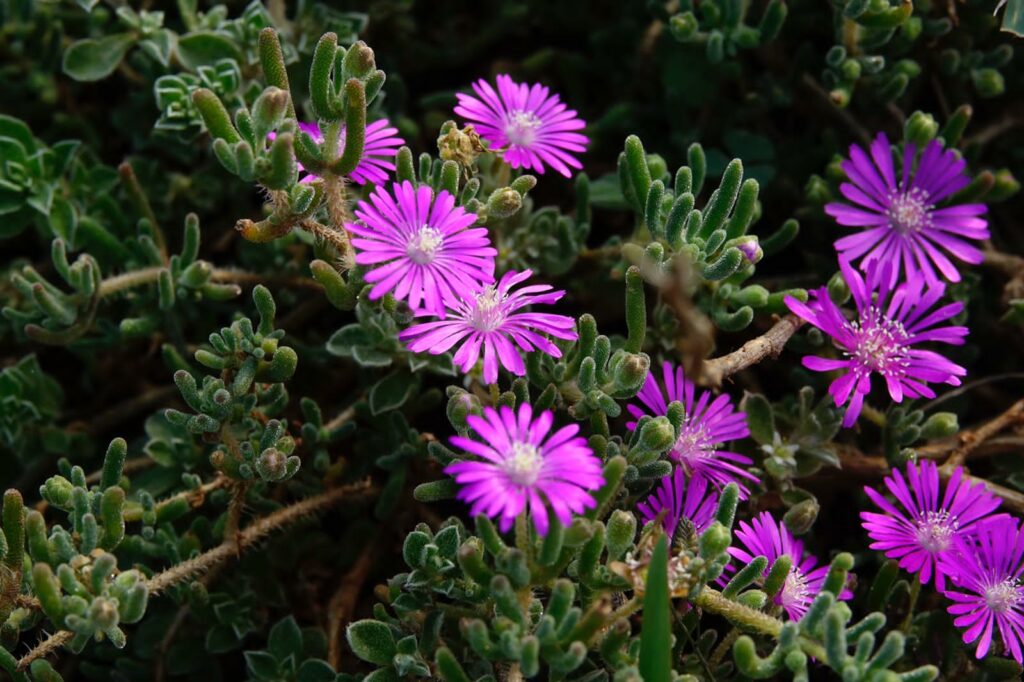
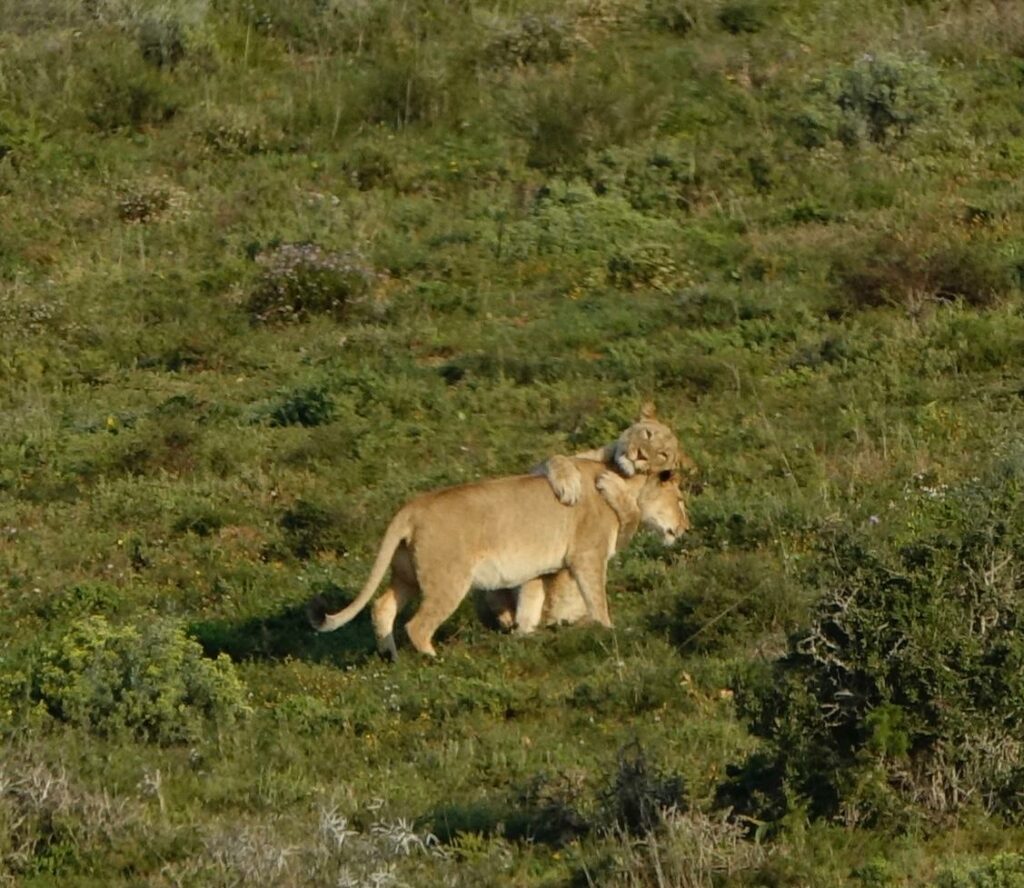
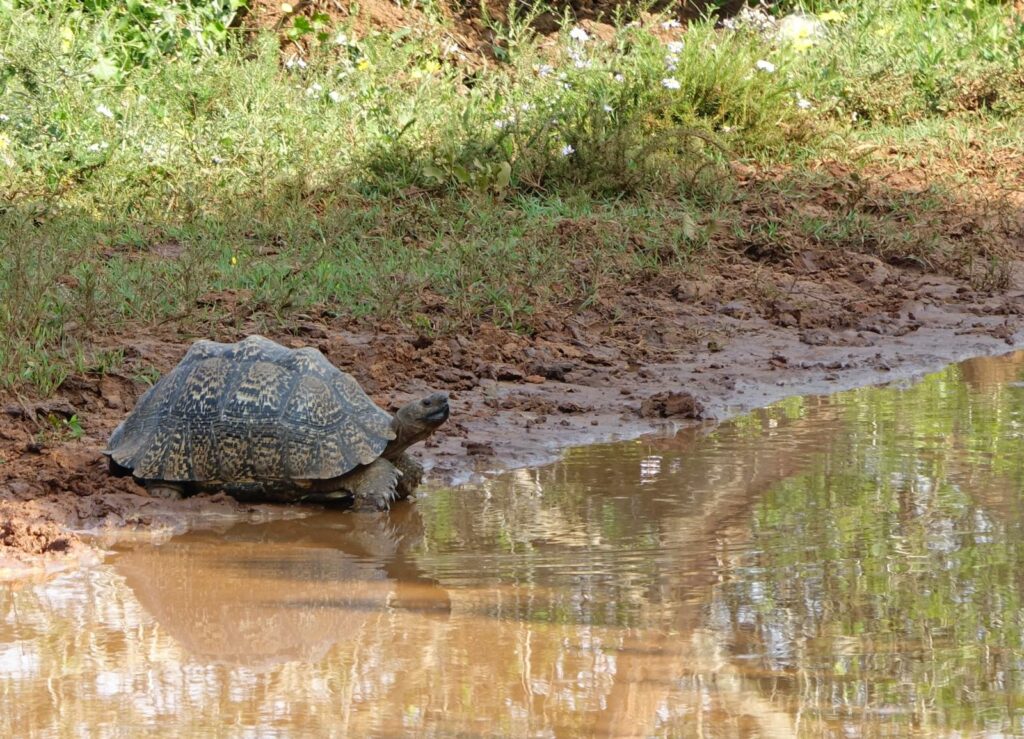
Finally, congratulations have to be said. We made it. In the beginning, when we looked at the insurmountable course material between us and completion it seemed immense (which it was) but now we’re here, so much wiser and more understanding of the ecosystem that surrounds us and the intricacies that keep it alive. Best of luck to you all in your endeavors and I hope these lessons stay with you for life. – Liam Souter (UK / SA)
“Collaboration, creativity, and respect build life long connections that matter and make a difference, propelling us to work together across all boundaries.”
– Diane Luna
Where to begin…
Wow! I don’t even know where to begin. Before I joined this course I felt extremely nervous, especially because I was the only onsite student (which made it feel a bit daunting, to be honest). However, I quickly began to realize that it was all in my head. I came to discover that the people here, staff and students, are some of the best people I have ever met, as well as some of the most intelligent and interesting people that I have been lucky enough to spend time with. Not only do they know their way around a joke or two but also the knowledge that I have gained from them was only part of my imagination prior to the course.
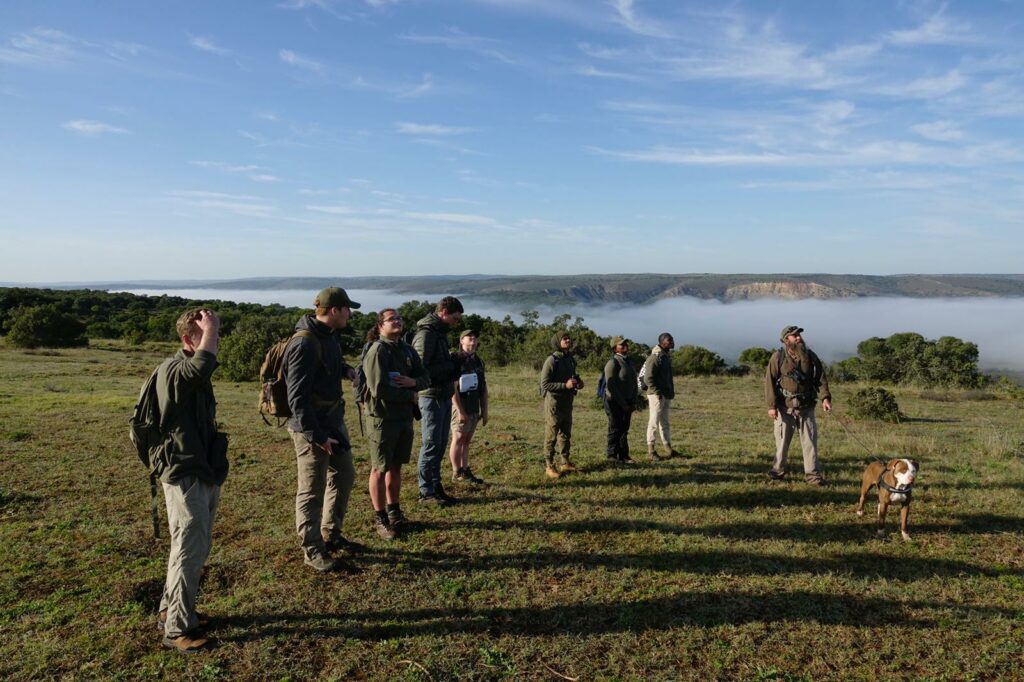
I remember on my first drive when Karien showed us how a Red Hartebeest marks its territory by scraping the sides of Termite mounds, or even just recently when Piet showed us an Elephant sleeping spot. And I just have to add the tracking assessment! During that day I learned such a wide variety of different tracks and behavioral traits of animals that my understanding of them increased significantly. For example, I learned that an Oryx will pretty much construct pyramids with its dung when defecating in order for it to stay fresh for longer, ensuring that its territorial scent remains in the area for a longer period. I have to admit that the tracking assessment has got me contemplating doing the Apprentice Trails Guide course because I think I may have found something I would love to study more in-depth.
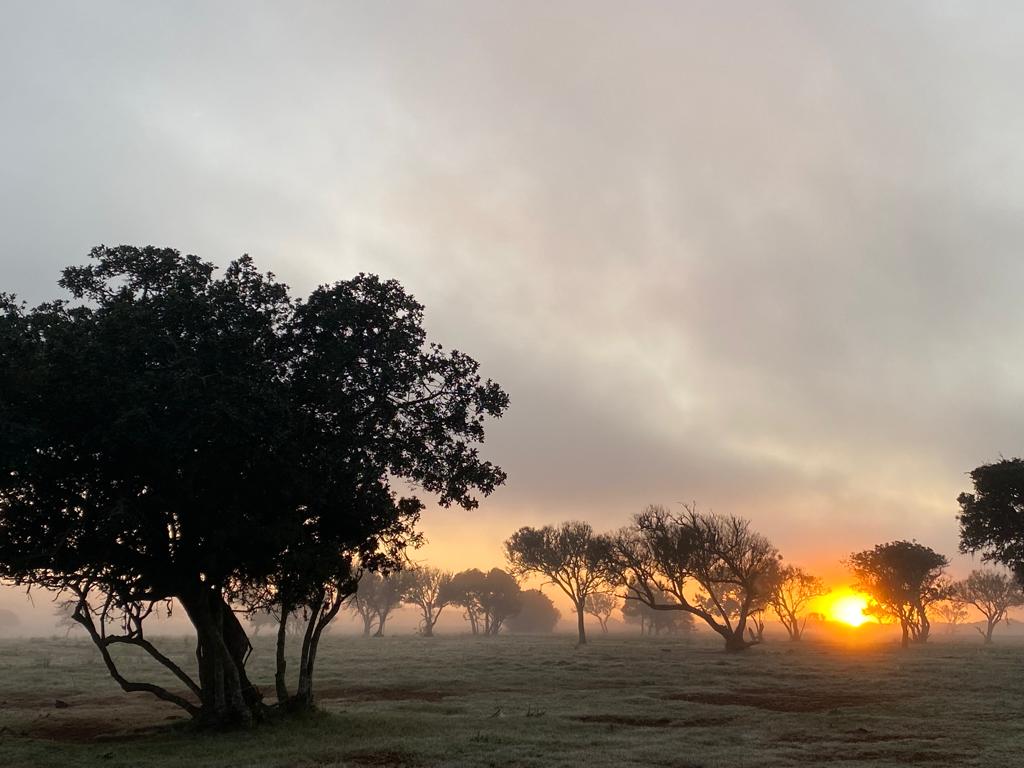
Now don’t get me wrong, I would be lying if I said it hasn’t come without its challenges. There have been a few occasions where I felt I wouldn’t be able to get through it, but I just keep on reminding myself of where I am and what the end result will be. It has allowed me to at least try my best because after all, the reward will outweigh the challenges tenfold. My time at Ulovane has easily been one of the greatest experiences of my life and I am thankful for everything I have learned. – David Crawshaw (South Africa)
“He who is not courageous enough to take risks will accomplish nothing in life.”
Muhammad Ali
